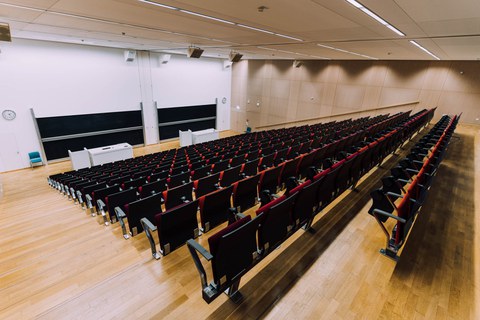Sep 21, 2020
Studying in the time of pandemic
The Center for Molecular and Cellular Bioengineering (CMCB) closed on March 13th, shortly before the start of the new semester, in order to reduce the spread of COVID-19. TU Dresden activated its emergency operations mode shortly after, on March 21st. Nevertheless, the teaching at CMCB continued.
The closing of the institutes came as a surprise to the students. “Nobody knew at first what the future of the Master’s courses is going to be. Is the semester going to be cancelled? Can we go home? How could we cover the living costs if the studies get extended?” says Catherine Cortés, student quality assurance (QA) coordinator for the Regenerative Biology and Medicine course.
After TU Dresden gave the green light for remote teaching, the students and teachers had to adapt to the new reality - one with virtual lectures, voice-over presentations, and online Q&A sessions. “The first few weeks went by just getting the hang of the video conferencing and keeping up with the schedule while being at home. But in the end, I have to say that it has been an amazing e-learning experience,” says Archana Sivaraman, the student QA coordinator for the Molecular Bioengineering course.
That does not mean that there were no challenges, quite the contrary! Many students decided to go back home. Some traveled back to Hamburg or Rostock but others to more distant locations such as India or Russia. That meant coordinating the teaching across several time zones.
“The lectures went pretty smoothly actually. The tutorials were a challenge though. It was quite difficult to have them as interactive as they normally are in person. For the lab courses, we mostly focused on the data analysis. That was also demanding without having first acquired the data during the actual lab work,” explains Ieva Austeja Jakaityte, the student QA coordinator for the Nanobiophysics course.
As Ieva mentioned, the laboratory work turned out to be the biggest challenge of all. The three Master’s courses are filled with practical lab work. On top of that, the students from the Regenerative Biology and Medicine course have to rotate in a different lab each semester. Even though the institutes reopened after eight weeks, there were still limitations for the students that stopped them from coming back to the labs. Some students decided to do lab rotations in their home countries. Others started later than usual and chose to continue working throughout the summer.
“This was indeed a very special semester with quite some challenges for students and lecturers,” said Prof. Dr. Marius Ader, CMCB Study Dean. “With the great support of the CMCB teaching team we managed to secure all lectures and lab rotations for the students, everyone showing a high degree in engagement, flexibility, and understanding!”
The first online semester is coming to an end. The students will take their remaining exams until the end of September. The CMCB teaching team already prepares for the winter semester. The next semester will most probably be a hybrid one, with a mixture of online and regular teaching and - of course - a new set of challenges to overcome.

